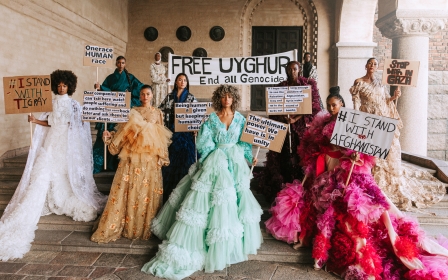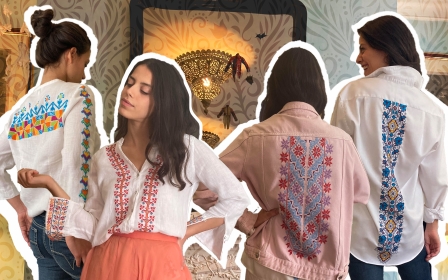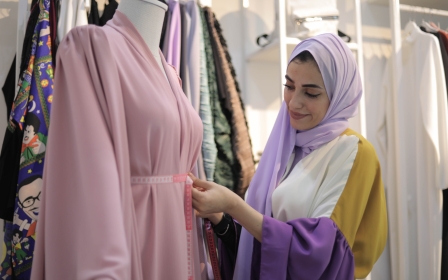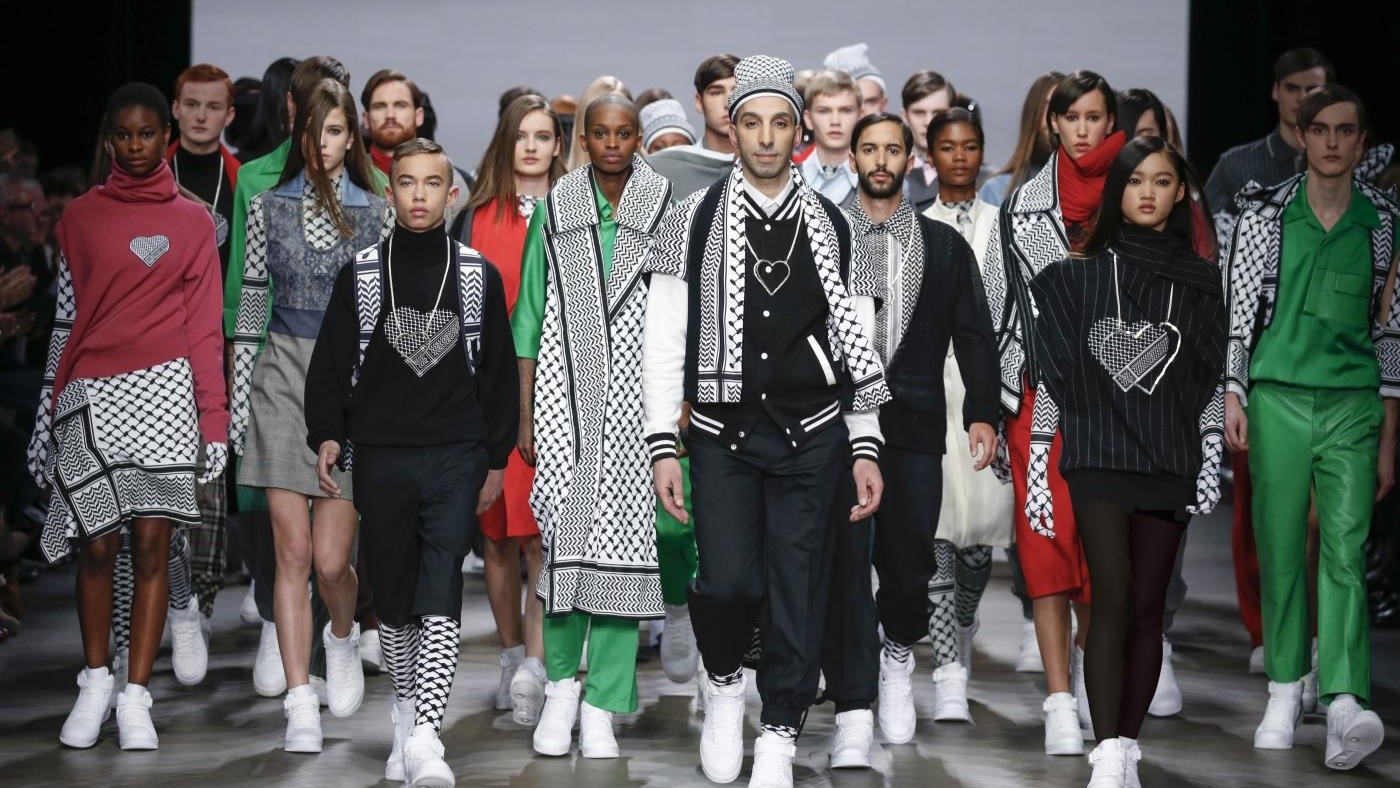
In pictures: Aziz Bekkaoui on fashion, the keffiyeh and resistance
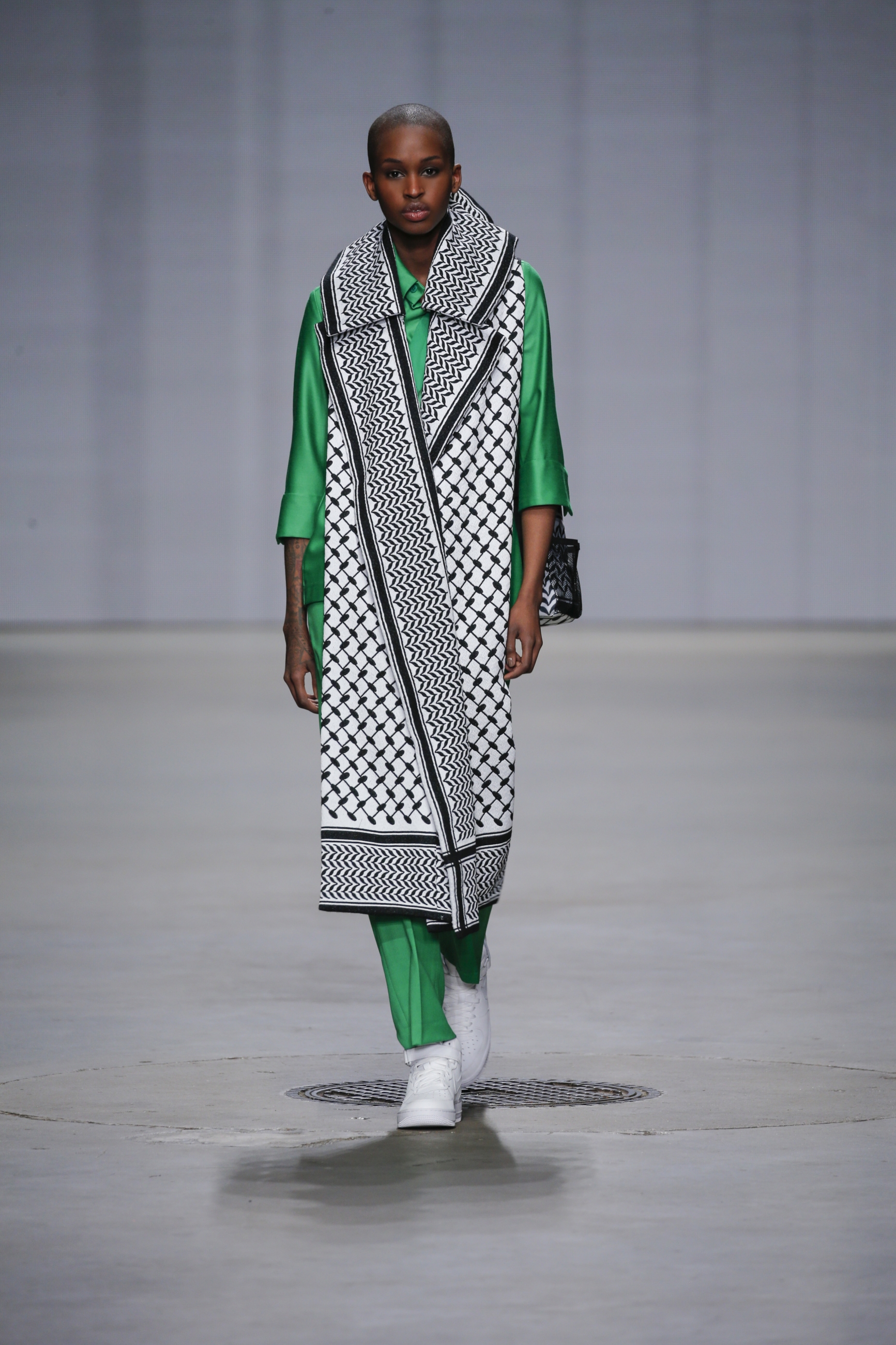
An iconic symbol of the Palestinian cause, the black and white-patterned keffiyeh makes a striking impression on the catwalk. Announced in 2022, Dutch-Moroccan designer Aziz Bekkaoui’s World Keffiyeh Day collection features dozens of garments inspired by the distinctive Palestinian design, as much a political symbol as it is a cultural artefact. Traditionally worn by Levantine Bedouins to ward away the sun, sand and heat, the keffiyeh became a symbol of Palestinian resistance against Israel after the Nakba.
Today, wearing the scarf has also become a marker of solidarity among those sympathetic to the Palestinian plight. It is to that end that the 53-year-old Bekkaoui incorporates the design into his recent collection, which features blazers, cropped tailored jackets, backpacks, hats and scarves. (All pictures courtesy of Aziz Bekkaoui who is pictured in the front centre of the top image)
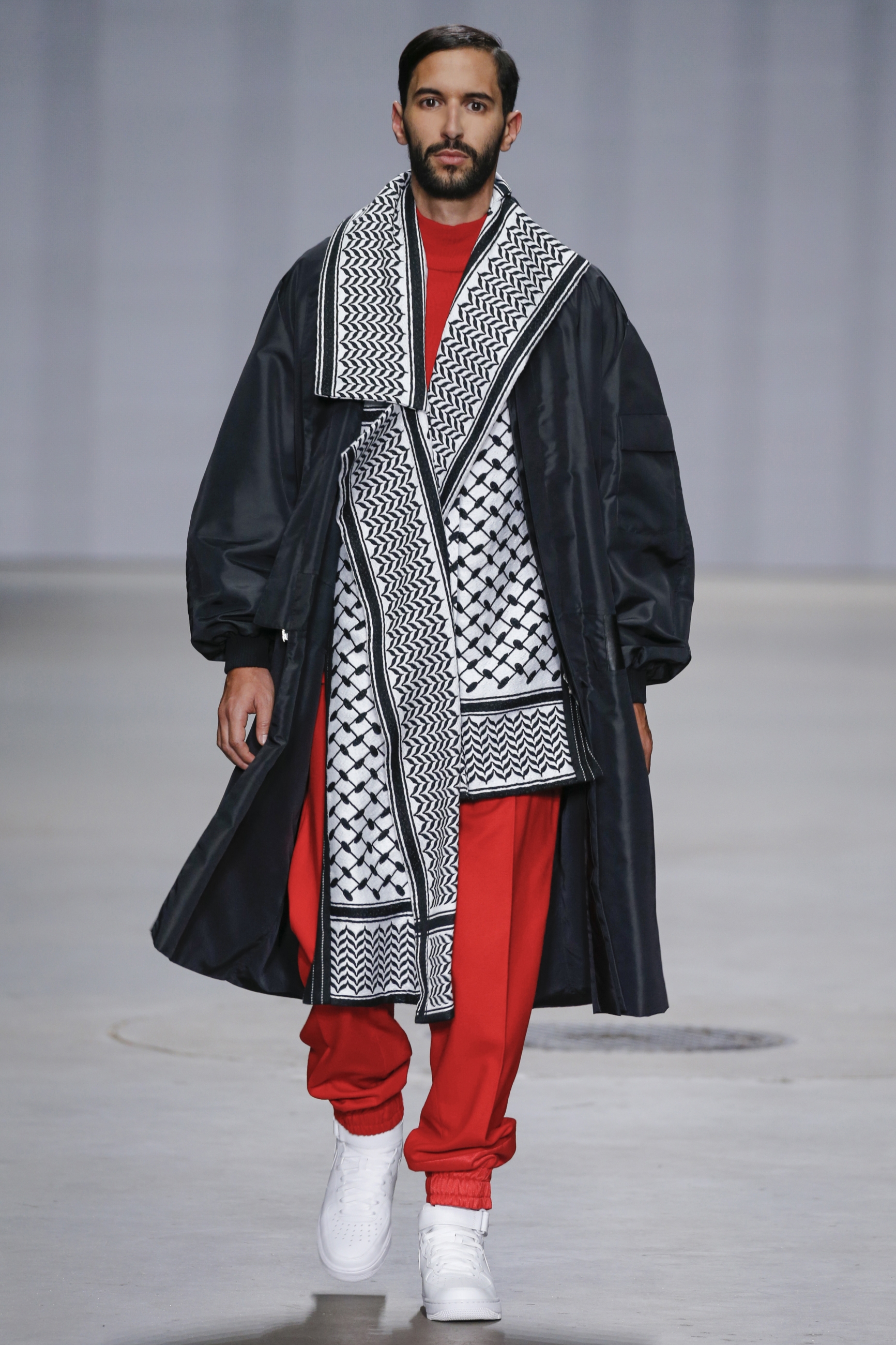
When he was younger Bekkaoui wanted to study architecture, but tells Middle East Eye that he went into the fashion industry because of its "powerful and direct possibilities". He says his design philosophy is built on awareness of the society around him and the sustainability of materials.
The Keffiyeh Day Collection has its origins in Bekkaoui's belief that fashion should tell the stories of the world from which it comes. “For me, a piece of textile is not just a piece of material," he says. "It communicates something, there’s a story attached to it. The keffiyeh is a piece of textile that has been communicating and speaking to us for centuries."
Before starting to work on the collection, Bekkaoui spent weeks researching the origins, meaning and construction of the keffiyeh.
“The keffiyeh tells the story of Palestinian resistance. This piece of textile has enormous power linked to tradition and craftsmanship,” he says. “It is a symbol, which is stronger than a flag.”
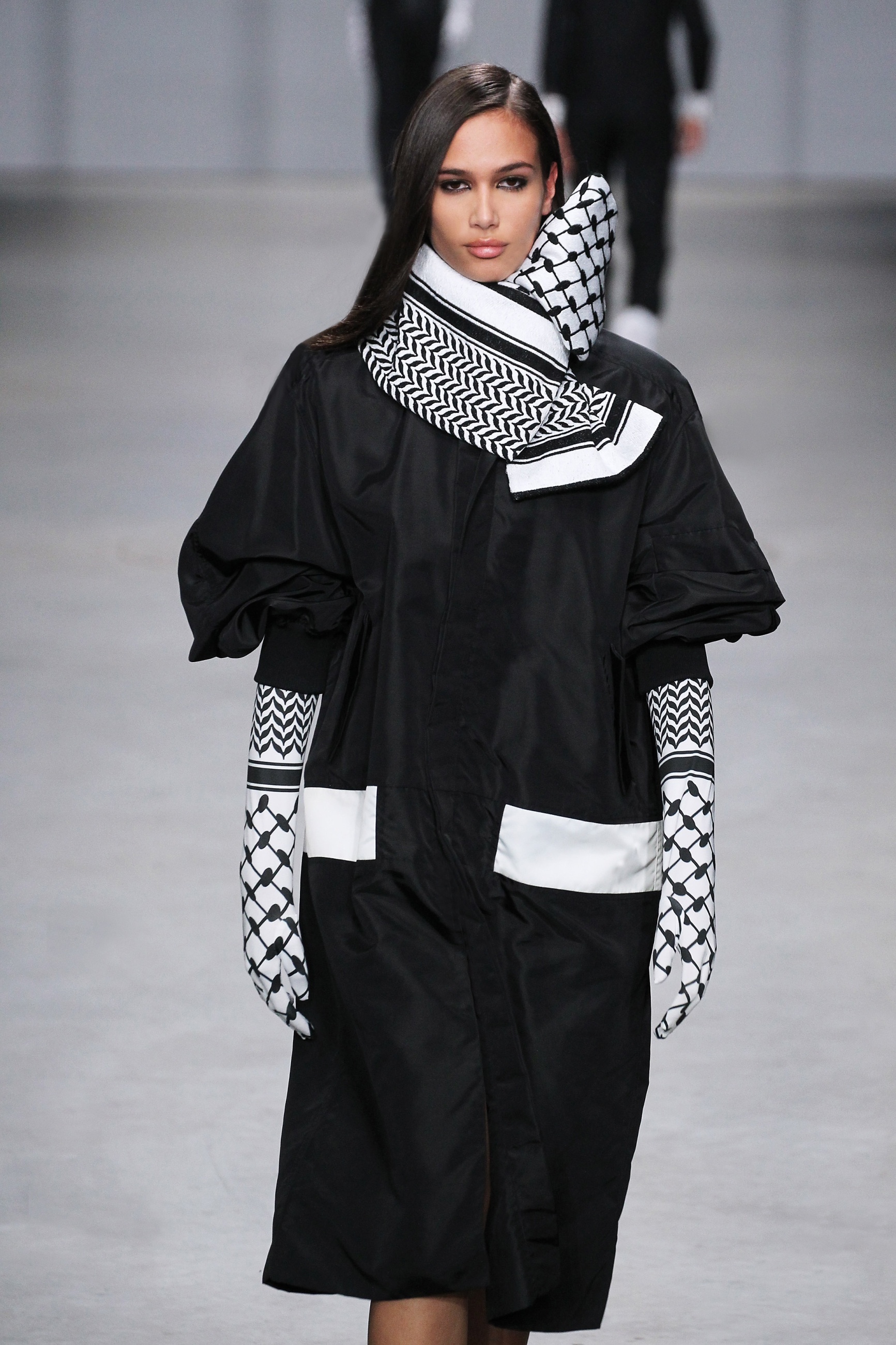
The keffiyeh is imbued with values that Bekkaoui holds close to his heart, such as the idea of righting wrong.
“From a young age, you are taught to fight injustice and do your bit for a better world… art and fashion are about more than the trend of the season and which colour is in right now,” he says. “Textiles are my profession and medium, and I want to use it to contribute to fighting against injustice and making the world a better place.”
The fashion designer says that he is also motivated by the appropriation of the keffiyeh by big brands, who largely detach the design from its Palestinian context and refuse to acknowledge the origins and meanings behind the scarf. Brands, such as the controversial label Balenciaga, have used variations of the keffiyeh in their collections without acknowledging its symbolism in the Palestinian struggle. “As far as I am concerned, this is empty, meaningless and soulless,” Bekkaoui says of the trend.
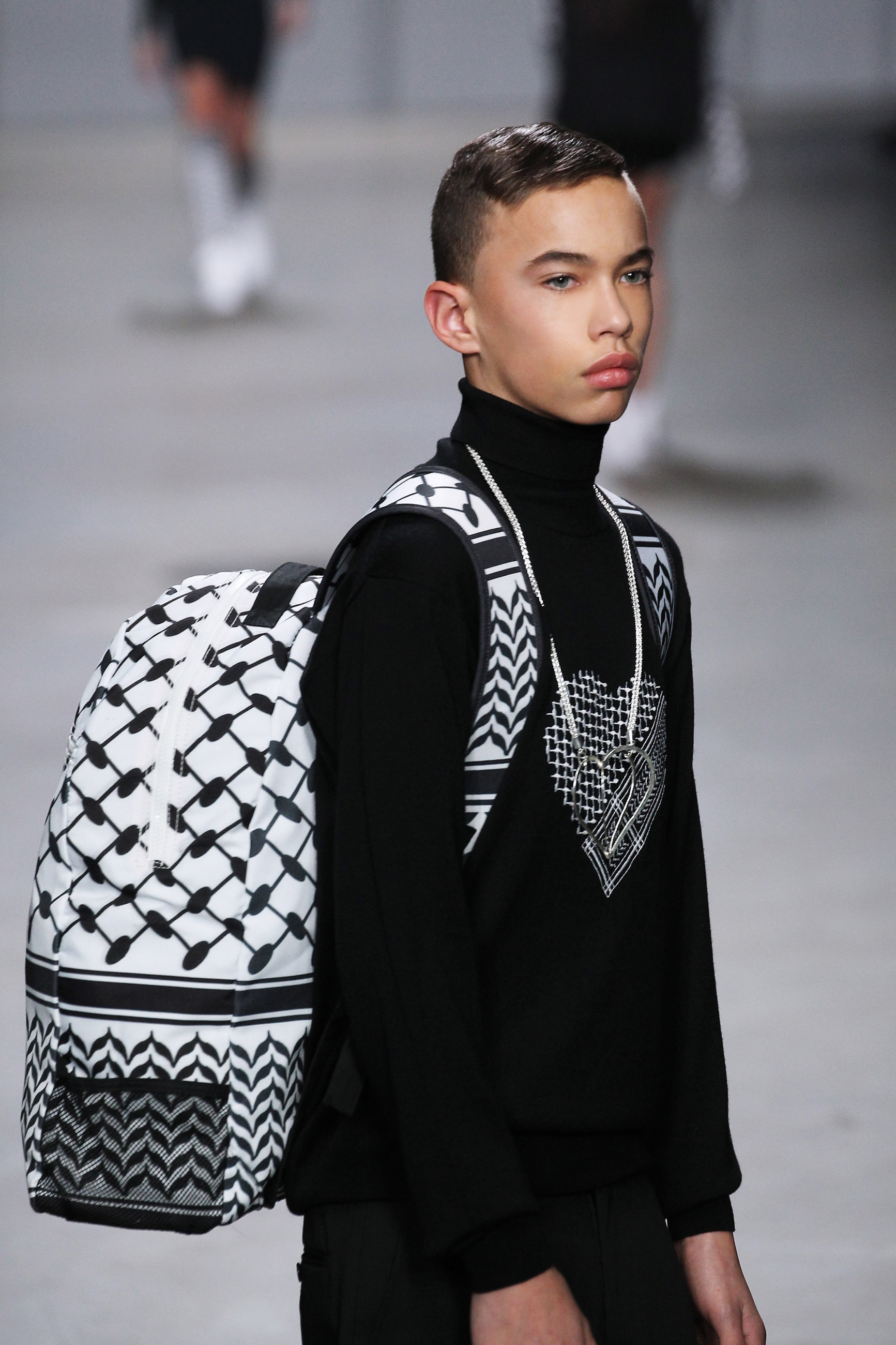
Without specifying who, Bekkaoui says he has been encouraged by others in the industry to not mix his design work with his political activism. That's advice he ignores outright, arguing the two are inseparable.
"Through fashion, I am able to reach people," he says, adding that he uses his designs to condemn the Israeli occupation of Palestine. His Instagram account, which has more than 50,000 followers, includes posts advertising his clothes as well as updates about Israeli human rights violations, including images of the late Al Jazeera journalist Shireen Abu Akleh, who was shot dead by Israeli soldiers while reporting in May 2022.
“I am an autonomous designer, not bound by the politically correct constraints of big commercial fashion houses,” Bekkaoui says. “I was outraged by the killing of Shireen Abu Akleh."
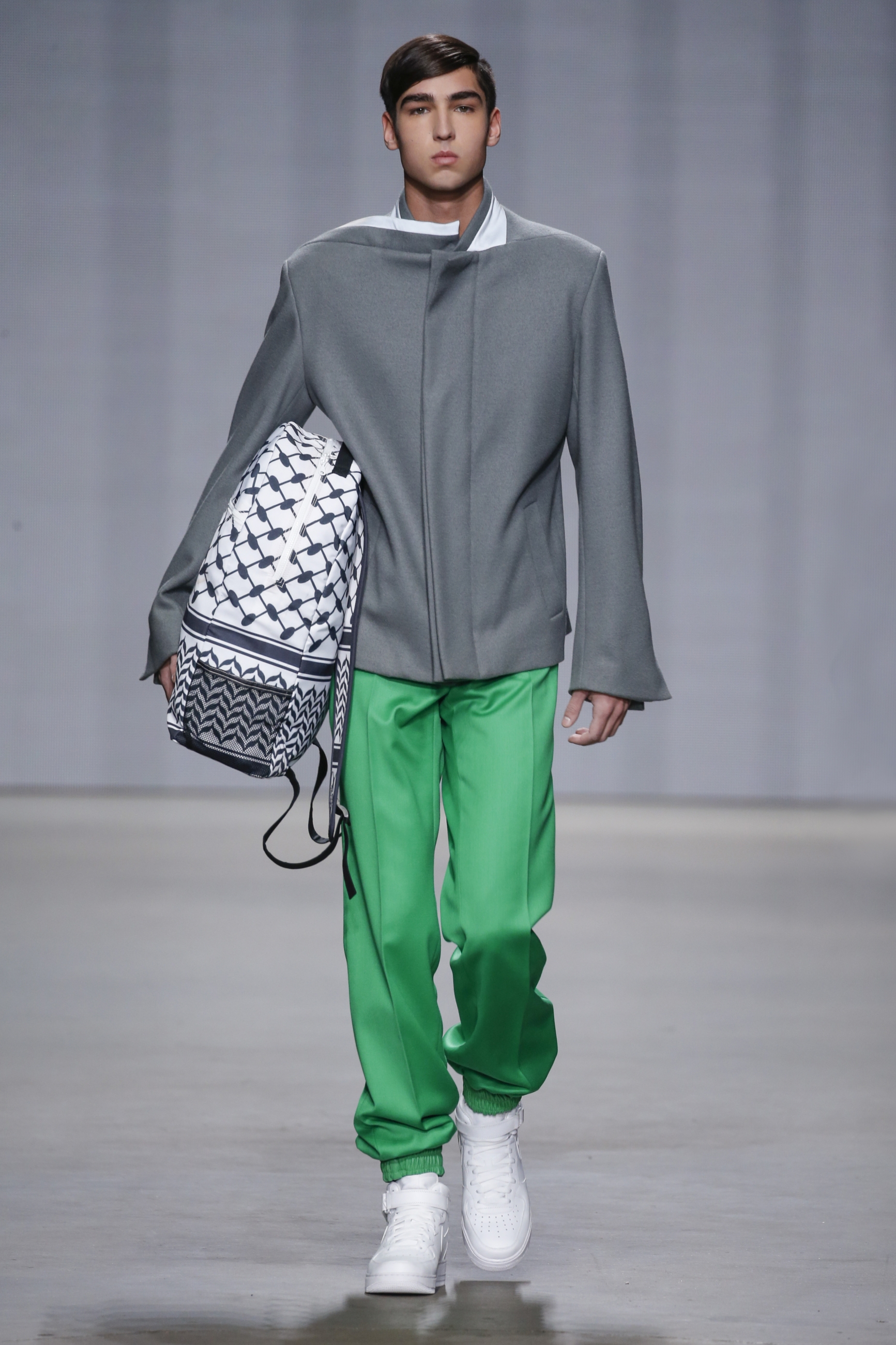
According to Bekkaoui, the fashion industry is not doing enough to raise awareness about the plight of Palestinians. "People in the fashion world generally do not express themselves much... about what is happening to the Palestinians. They don't venture into it for fear of being cancelled." He says that while he does intend to work on other projects, the Palestinian cause and the theme of injustice will continue to influence his work. “Resistance does not go out of fashion,” he says. “It is necessary as long as injustice exists.”
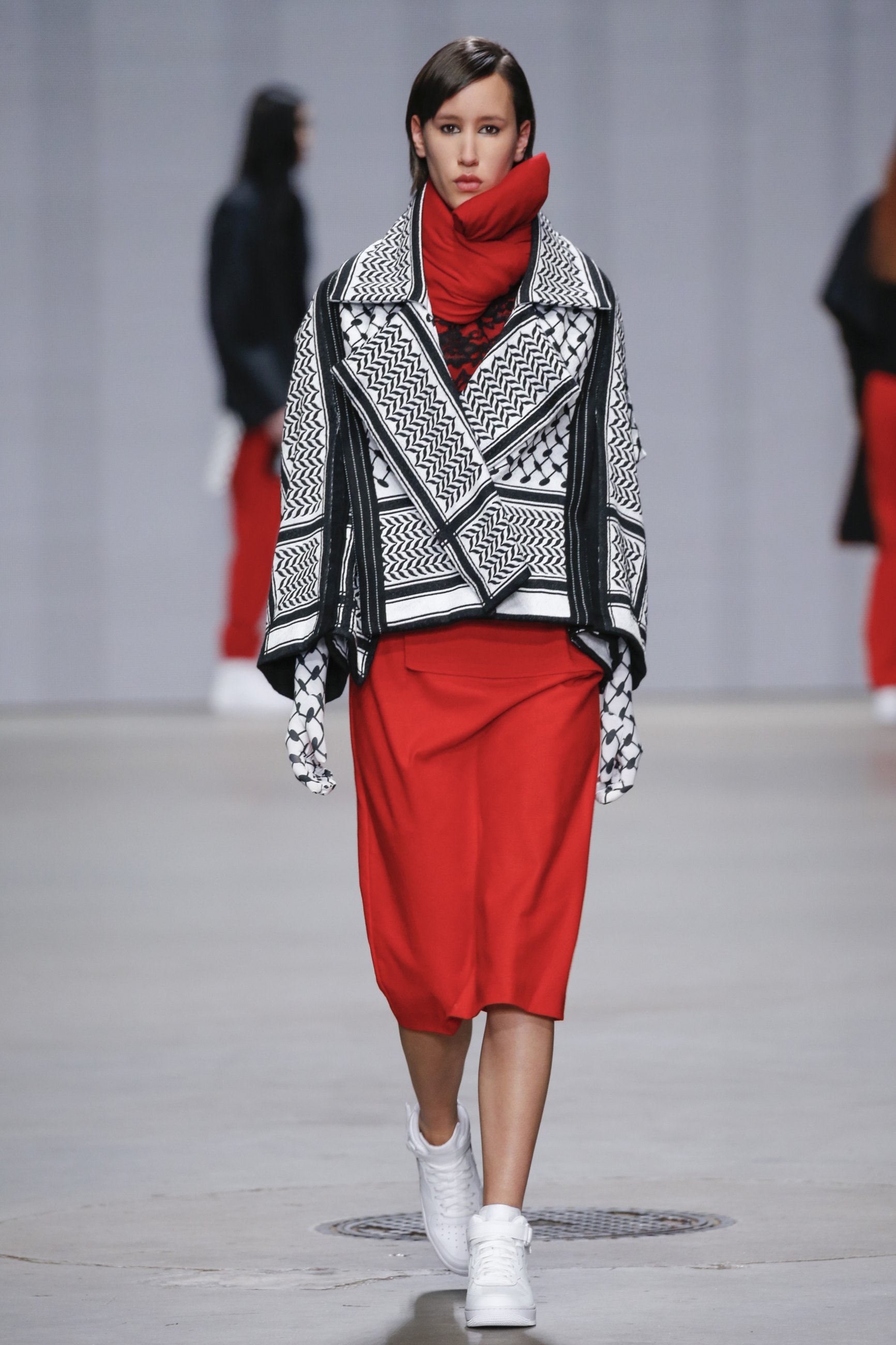
Bekkaoui says he has received thousands of positive reactions from people, many of whom have told him that they are proud of his work and are inspired by it. “With fashion, you don’t save lives," he says, adding: “It makes me genuinely proud when something I have worked on from my personal idealism is recognised by people and touches them. It means that with my profession, I have added something to the world.”
This article is available in French on Middle East Eye French edition.
Middle East Eye propose une couverture et une analyse indépendantes et incomparables du Moyen-Orient, de l’Afrique du Nord et d’autres régions du monde. Pour en savoir plus sur la reprise de ce contenu et les frais qui s’appliquent, veuillez remplir ce formulaire [en anglais]. Pour en savoir plus sur MEE, cliquez ici [en anglais].


